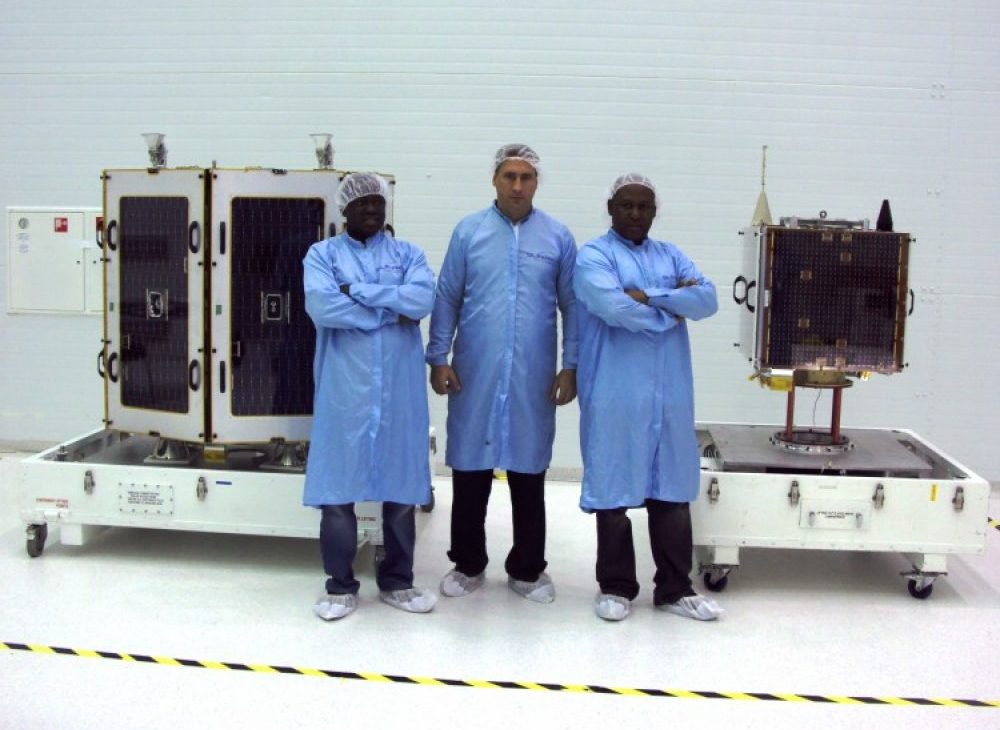Nigeria is embarking on an ambitious project to replace its aging satellite infrastructure in a bold move to revolutionise its space technology sector. The Nigerian Communications Satellite Limited (NIGCOMSAT) has initiated a global search for investors and collaborators to support this groundbreaking endeavor.
At the heart of this initiative is the impending retirement of NIGCOMSAT-1R, a communications satellite that has been the backbone of Nigeria’s satellite network since 2011. With its 15-year lifespan set to expire in 2026, NIGCOMSAT’s leadership is taking proactive steps to ensure uninterrupted service and technological advancement.
Jane Nkechi Egerton-Idehen, the Managing Director of NIGCOMSAT, has been at the forefront of this transformative project. Her vision extends beyond mere replacement; it encompasses a comprehensive upgrade of Nigeria’s satellite capabilities. The Global Satellite Operators Association has highlighted this initiative in their newsletter, underscoring its potential to revolutionize connectivity on both regional and global scales.
The proposed project involves the development of two new satellites: NIGCOMSAT-2 and NIGCOMSAT-3. This dual-satellite approach represents a significant leap forward in Nigeria’s space technology capabilities. It’s not just about maintaining current services; it’s about propelling Nigeria into a new era of satellite communications.
ALSO READ: Africa’s Tech Renaissance: UNDP’s Billion-Dollar Gambit
However, this ambitious plan is not without its challenges. The current NIGCOMSAT-1R has faced issues with low patronage, a hurdle that the new satellites must overcome. To address this, NIGCOMSAT has recently partnered with Dimension Data, agreeing to provide Internet services via its existing network platform. This strategic alliance could pave the way for increased utilization and revenue generation for the upcoming satellites.
The road to this point has been long and fraught with setbacks. The original NIGCOMSAT-1, launched in 2007, failed prematurely, necessitating the deployment of NIGCOMSAT-1R as a replacement. Learning from past experiences, the current initiative aims to create a more robust and reliable satellite network.
Financing this ambitious project remains a critical concern. Previous proposals, including one by former Communications Minister Barrister Adebayo Shittu, suggested securing a $550 million loan from China-Exim Bank to acquire two new satellites. While this specific plan didn’t materialize, it underscores the significant investment required for such a technological leap.
In the broader context of Nigeria’s space ambitions, this satellite replacement project is just one piece of a larger puzzle. The Nigerian government recently announced plans to send its first citizen to space, a collaboration between the National Space Research and Development Agency (NASRDA) and the Space Exploration and Research Agency (SERA). This announcement, coming almost six decades after the first moon landing, highlights Nigeria’s determination to make its mark in space exploration.
However, these lofty goals are tempered by financial realities. Earlier this year, NASRDA had to postpone its plans to launch a satellite from Nigerian soil in 2025 due to budget constraints. This setback serves as a stark reminder of the challenges facing Nigeria’s space program.
As Nigeria stands on the cusp of this new era in satellite communications, the success of the NIGCOMSAT-2 and NIGCOMSAT-3 projects could be transformative. These satellites have the potential to enhance internet connectivity, improve telecommunications, and boost various sectors of the Nigerian economy. Moreover, they could position Nigeria as a key player in the African space technology landscape.
The coming years will be crucial for Nigeria’s space ambitions. As the countdown to NIGCOMSAT-1R’s retirement begins, all eyes will be on NIGCOMSAT and its partners to see if they can successfully launch Nigeria into a new age of satellite technology. The success of this endeavor could very well shape the future of Nigeria’s technological landscape and its position on the global stage.















 and then
and then